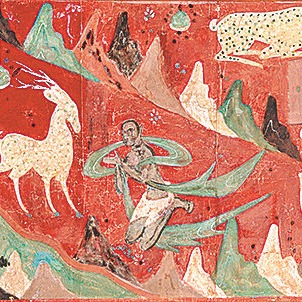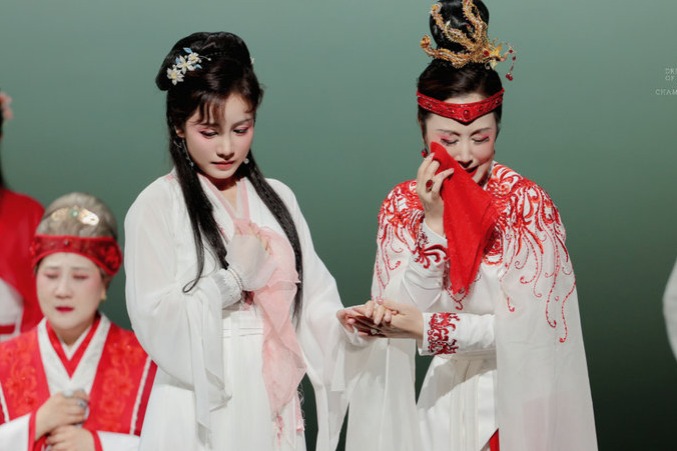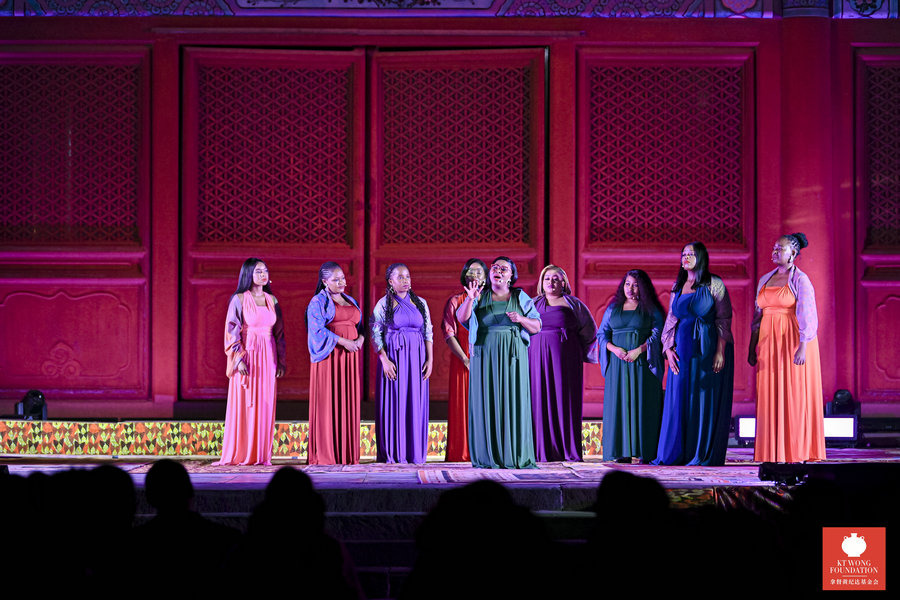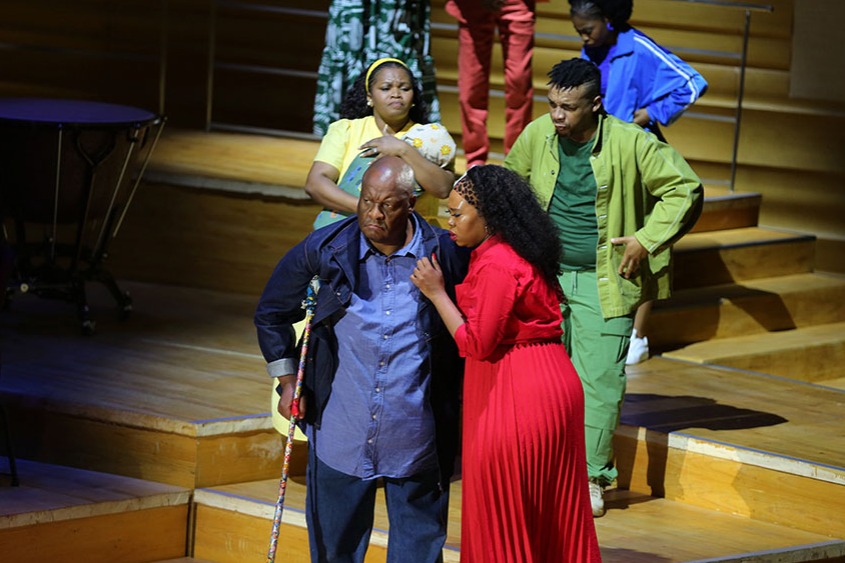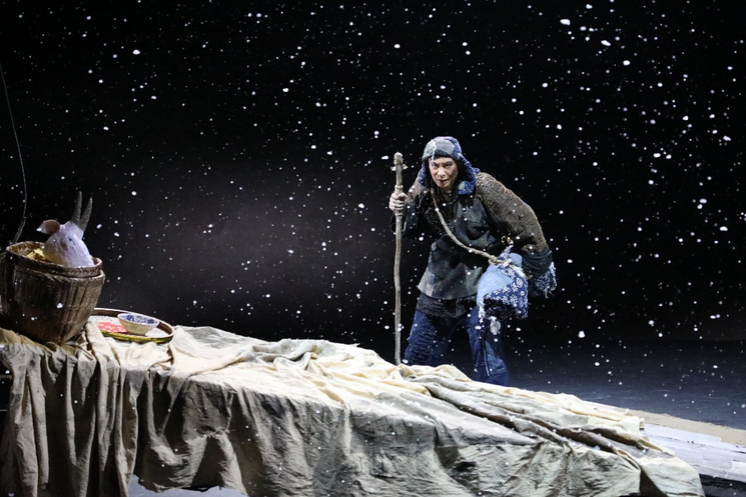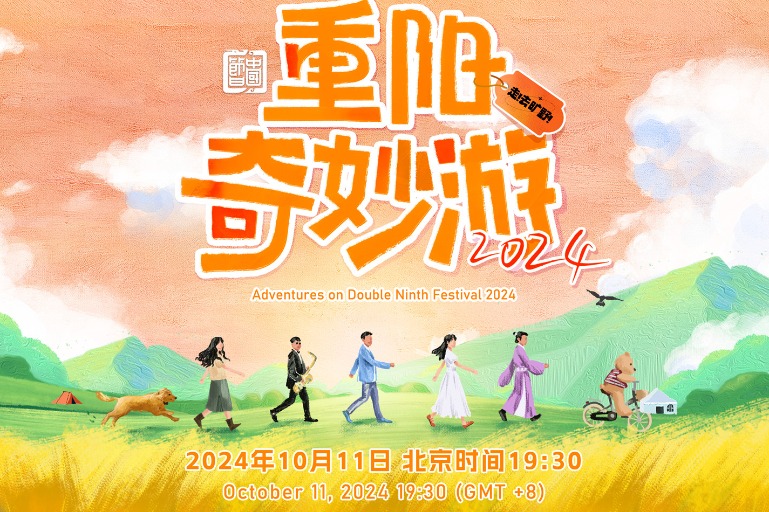Paintings explore odyssey of vision


In 1951, staff members of the academy co-authored an article introducing their facsimile project, which said that over the past four decades, many of the murals presented in Pelliot's photo catalog had been destroyed or faded. With limited scientific knowledge and facilities, facsimile had become their priority and urgency.
According to Chang Jiahuang, since the 1950s, his father had been frequently inviting art majors from across the country to copy the murals and sculptures of the Mogao Caves, while learning the traditional arts of Dunhuang.
In 1979, he also replicated the mural featuring Prince Sattva of Cave 254, when he and a dozen classmates at the Lanzhou-based Academy of Fine Art and Design of Northwest Normal University joined this program under the strict supervision of his father, who, nevertheless, would sometimes visit them without notice late at night in the caves where they were working, bringing pears he himself grew.
Chang Jiahuang says: "It was only after a long time that I learned from my father's memoir why he had such an attachment to this mural and why he wanted me to copy it.
"During his most difficult times, this painting inspired him, generating courage for him to persevere. In those three months, I deeply felt the dedication of ancient painters of Dunhuang and my own parents."
This year also marks the 100th anniversary of his mother's birth, who joined in the research and conservation of the Mogao Caves in 1947. In April, the son donated their family's 1,500 boxes of belongings to Zhejiang University, his father's alma mater, for research and digitalization.


